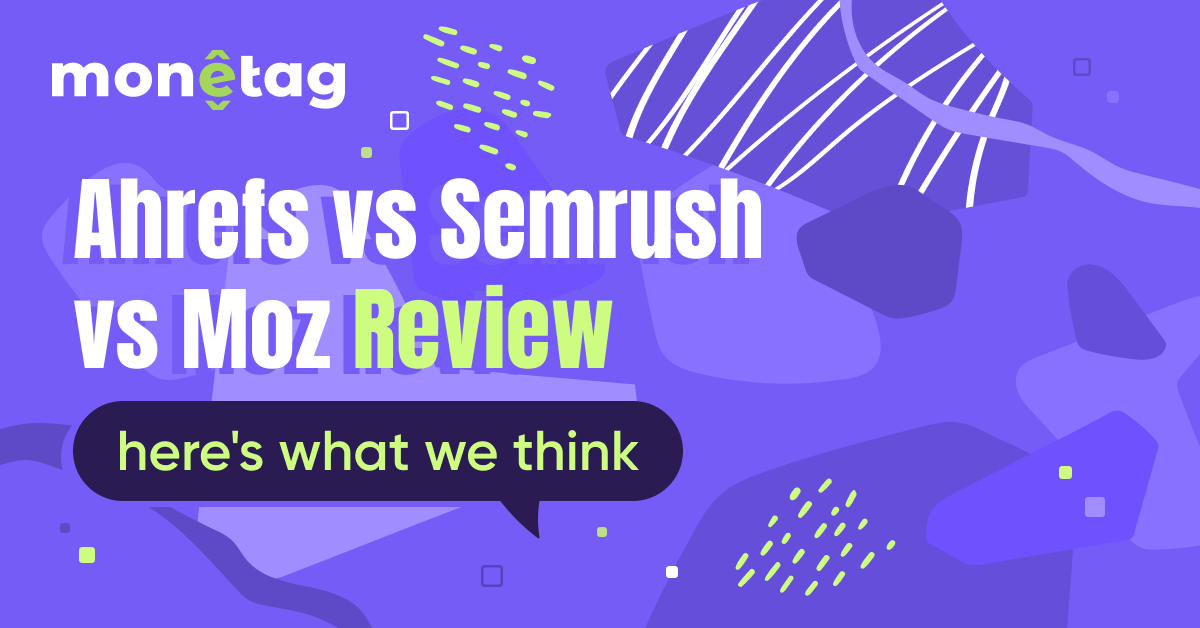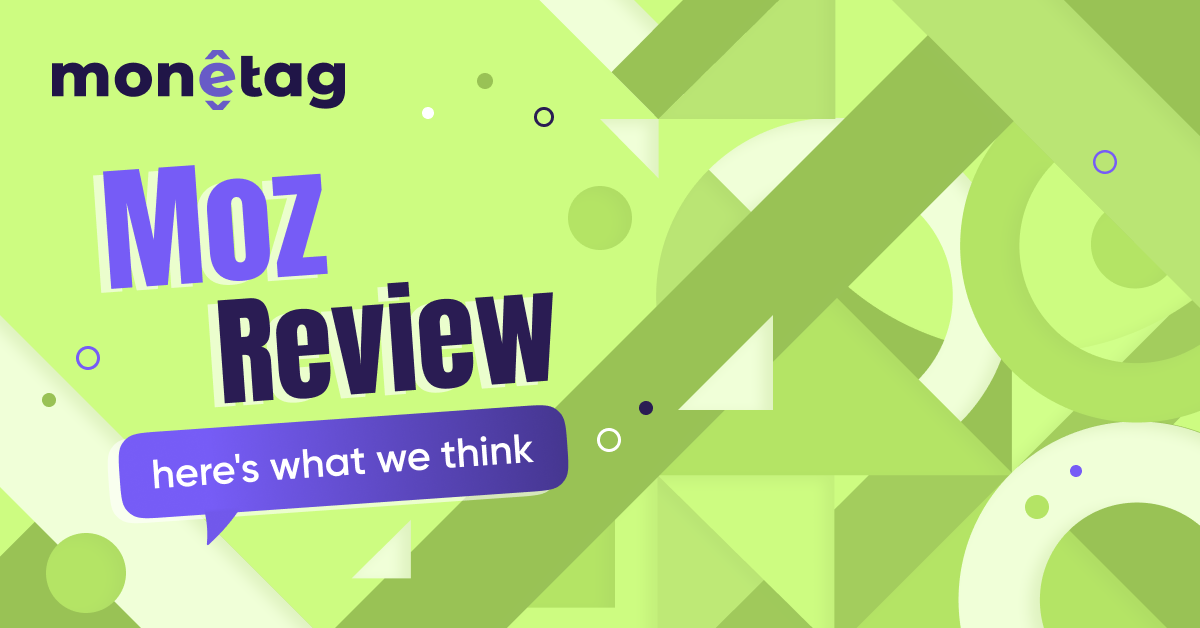| Ahrefs’ Backlink Database | Semrush Backlink Analytics | Moz Link Explorer |
|---|---|---|
| Indexes over 12 trillion links Updates every 15-30 minutes Provides detailed anchor text analysis Shows link growth over time Identifies broken link opportunities | Good for quick overviews Useful “Backlink Gap” tool Toxic link detection Less comprehensive than Ahrefs | Simpler interface Focuses on domain authority metrics Good for basic link profiles Lacks depth for advanced users |
Ahrefs vs. Semrush vs. Moz: The Ultimate SEO Tools Showdown

Let’s cut through the noise. Choosing between Ahrefs, Semrush, and Moz isn’t just about features – it’s about finding the right fit for your specific SEO needs.
We’ve done deep research, tried out all the tools, asked experts, and read real reviews.
Here’s the result: an honest and unbiased comparison that contains everything you need to know to make an informed decision.
Understanding the Core Strengths
First, let’s look at what each platform does best:
Semrush shines as the most comprehensive marketing toolkit. It’s not just an SEO tool – it’s a complete digital marketing suite that happens to excel at search optimization. The keyword research capabilities are particularly impressive, with the Keyword Magic Tool offering over 20 filters to drill down into the perfect terms for your content strategy.
Ahrefs remains the undisputed king of backlink analysis. Their index updates every 15-30 minutes, making it the freshest link database available. For competitive analysis and understanding why certain pages rank, Ahrefs provides unparalleled insights.
Moz offers the most beginner-friendly approach while maintaining robust functionality. The clean interface and straightforward metrics make it ideal for those new to SEO or small business owners who need reliable data without complexity.
Keyword Research: Depth vs. Usability
When it comes to finding the right keywords, each platform takes a different approach:
Semrush’s Keyword Magic Tool provides an exhaustive list of related terms, questions, and variations. The “Keyword Difficulty” score is particularly accurate, incorporating more ranking factors than competitors.
You can filter by:
- Search intent (informational, commercial, etc.)
- Word count
- Questions
- SERP features (featured snippets, videos, etc.)

Semrush dashboard
Ahrefs focuses on practical keyword opportunities through its “Keyword Explorer” and “Content Gap” analysis. The “Parent Topic” feature helps identify broader themes to target, while the “Click Potential” metric estimates how many clicks you might actually get from ranking.

Source: https://ahrefs.com/keywords-explorer
Moz simplifies the process with its “Keyword Explorer,” offering clean metrics like:
- Volume
- Difficulty
- Organic CTR
- Priority (a combined score)

Moz Keyword Explorer, source: https://moz.com/explorer
Pro Tip: Many professional SEOs use Semrush for initial research and Ahrefs for competitive analysis, creating a powerful combination.
Backlink Analysis: The Critical Difference
Backlinks remain Google’s strongest ranking factor, and here’s how the tools compare:
Real-world example: An e-commerce site used Ahrefs to find 147 broken links pointing to competitor product pages, then reached out to those sites to replace them with links to their own products, resulting in a 23% traffic increase.
Site Audits and Technical SEO
Technical issues can sink your rankings. Here’s how each platform handles site health:
Semrush Site Audit

- Checks 120+ technical factors
- Provides prioritized fixes
- Tracks progress over time
- Includes JavaScript rendering
- Offers PDF reports for clients
Moz Pro Site Crawl

Source: https://moz.com/
- Focuses on 50 key issues
- Easier to interpret for beginners
- Good for basic technical SEO
- Lacks some advanced diagnostics
Ahrefs Site Audit

Source: https://ahrefs.com/site-audit
- More limited in scope
- Basic crawl functionality
- Better for backlink-related issues
- Not as comprehensive as Semrush
Important note: For large sites (10,000+ pages), Semrush’s audit tool provides more actionable insights for technical SEO improvements.
Pricing and Value Comparison
Let’s break down the costs:
| Feature | Ahrefs Lite ($129) | Semrush Pro ($139.95) | Moz Standard ($99) |
|---|---|---|---|
| Keyword Tracking | 500 | 500 | 300 |
| Site Audits | Limited | Full | Full |
| Backlink Analysis | 5,000 rows | 10,000 rows | 3,000 rows |
| API Access | No | No | No |
| Best For | Backlink focus | Comprehensive SEO | Beginners |
Key considerations:
- Ahrefs becomes more cost-effective at higher tiers
- Semrush offers more features per dollar
- Moz provides the best entry-level pricing
Unique Features Worth Mentioning
Each platform has some standout capabilities.
Semrush offers position tracking with daily updates, SEO Writing Assistant for content optimization, PPC keyword tools for paid campaigns, brand monitoring, and social media tools.
Ahrefs has a tool called Content Explorer for finding popular articles, Rank Tracker with historical data, Site Explorer for deep competitive analysis, and a broken link checker for finding opportunities.
Moz users can get the most out of the Domain Authority metric (industry standard), Page Optimization suggestions, Local SEO features, and beginner-friendly learning resources.
Who Should Choose Which Tool?
For agencies, Semrush is the clear choice with its all-in-one marketing toolkit. Seasoned SEOs appreciate how it handles everything from keyword research to PPC in one platform, though some grumble about being pushed into pricier plans for essential features. The white-label reporting alone justifies the cost for many agencies, while content teams swear by the real-time SEO Writing Assistant.
Link builders live by Ahrefs for good reason – its backlink data updates faster than competitors, letting users spot and replicate competitor strategies almost in real-time. The broken link finder has helped countless sites reclaim valuable links, though international marketers note its keyword tools fall short for non-English markets.
Beginners and small businesses find Moz’s straightforward approach ideal. The free MozBar extension helps fix basic on-page issues, while local businesses particularly benefit from its citation tools. While professionals may outgrow it, Moz remains the best starting point for building SEO fundamentals without overwhelming newcomers.
The smartest operators use a mix – Ahrefs for links, Semrush for keywords, Moz for training, recognizing no single tool does everything perfectly.
As one veteran put it, choosing an SEO tool is like picking kitchen gear: you need different tools for different jobs.
Ahrefs vs Semrush vs Moz: The Real User Verdict
Let’s hear what actual users are saying about these tools across forums like Reddit, BlackHatWorld, and industry communities. I’ve combed through hundreds of discussions to bring you unfiltered opinions.
Is Ahrefs More Accurate Than Moz?
Short answer: it depends what you’re measuring, but for most pro SEOs, Ahrefs is considered more accurate for backlink data, while Moz is “accurate enough” and easier to use for high-level metrics.
Independent comparisons and case studies usually find that Ahrefs discovers more referring domains, updates its index more frequently, and gives a fresher picture of your link profile than Moz, which makes it a go-to for competitive link analysis and serious link-building campaigns.
That said, Moz isn’t “inaccurate” – it’s just optimized differently. Moz’s own research shows its index can be very strong on relevancy, and some tests find Moz and Ahrefs surprisingly close in overall link quality, even if Ahrefs wins on raw coverage and freshness.
Moz also shines with clear, beginner-friendly metrics like Domain Authority and Spam Score, which many marketers rely on for quick evaluations rather than deep forensic analysis. In practice, advanced SEOs often treat Ahrefs as the more precise instrument for backlink and keyword data, and use Moz as a complementary tool for simple authority metrics, education, and local/basic SEO tasks.
Ahrefs: The Backlink Powerhouse
What users love:
- “Ahrefs’ backlink data is scary accurate. Found links I didn’t even know existed.” (u/SEOGuru, Reddit)
- “The ‘Lost Backlinks’ report saved our agency $3k/month in broken link building.” (BlackHatWorld user)
- “Content Explorer helps me find viral topics before they blow up.” (Content Marketing Forum)
Common complaints:
- “The interface looks like it’s from 2010. Steep learning curve.” (WebmasterWorld)
- “Pricey for what you get if you don’t need advanced link data.” (r/SEO discussion)
- “Keyword research feels tacked on compared to Semrush.” (LinkedIn SEO Group)
Pro tip from users: “Combine Ahrefs with Screaming Frog for unbeatable technical audits.” (Agency owner, Twitter)
Semrush: The All-Rounder
What users praise:
- “Their Position Tracking updates faster than my morning coffee brews.” (u/DigitalMarketer, Reddit)
- “Found 200+ low-competition keywords in 10 minutes with Keyword Magic.” (AffiliateFix forum)
- “Writing Assistant makes my content actually rank without guesswork.” (Content Creator FB Group)
Frequent frustrations:
- “So many features I still discover new tabs after 2 years.” (Moz Q&A)
- “Pricing jumps hurt small businesses.” (Twitter thread)
- “Backlink data lags behind Ahrefs by days.” (BHW comparison)
User Hack: “Use the ‘Topic Research’ tool to outline entire content calendars.” (Agency case study)
Moz: The Beginner’s Choice
User highlights:
- “Finally an SEO tool my mom could use. DA checker is life.” (r/Blogging)
- “MozBar is the only extension I keep always on.” (Local SEO Forum)
- “Their free resources taught me more than my marketing degree.” (Twitter)
Common gripes:
- “Link index feels incomplete compared to Ahrefs.” (WebmasterWorld)
- “Why does Pro still feel like a stripped-down version?” (Reddit r/TechSEO)
- “Rank tracking is painfully slow to update.” (SEO Discord)
Smart User Trick: “Combine Moz’s local SEO tools with Google Business Profile for domination.” (Local business owner)
Final Recommendation
After extensive testing and real-world use, here’s is the advice:
- Get Semrush if you need an all-in-one marketing toolkit or work with clients who need diverse reporting.
- Choose Ahrefs if backlinks and competitive analysis are your primary focus.
- Start with Moz if you’re new to SEO or run a small business with basic needs.
All three offer free trials or limited free versions – we recommend testing them with your specific use cases before committing. Remember, the best tool is the one you’ll actually use consistently to improve your SEO results.






